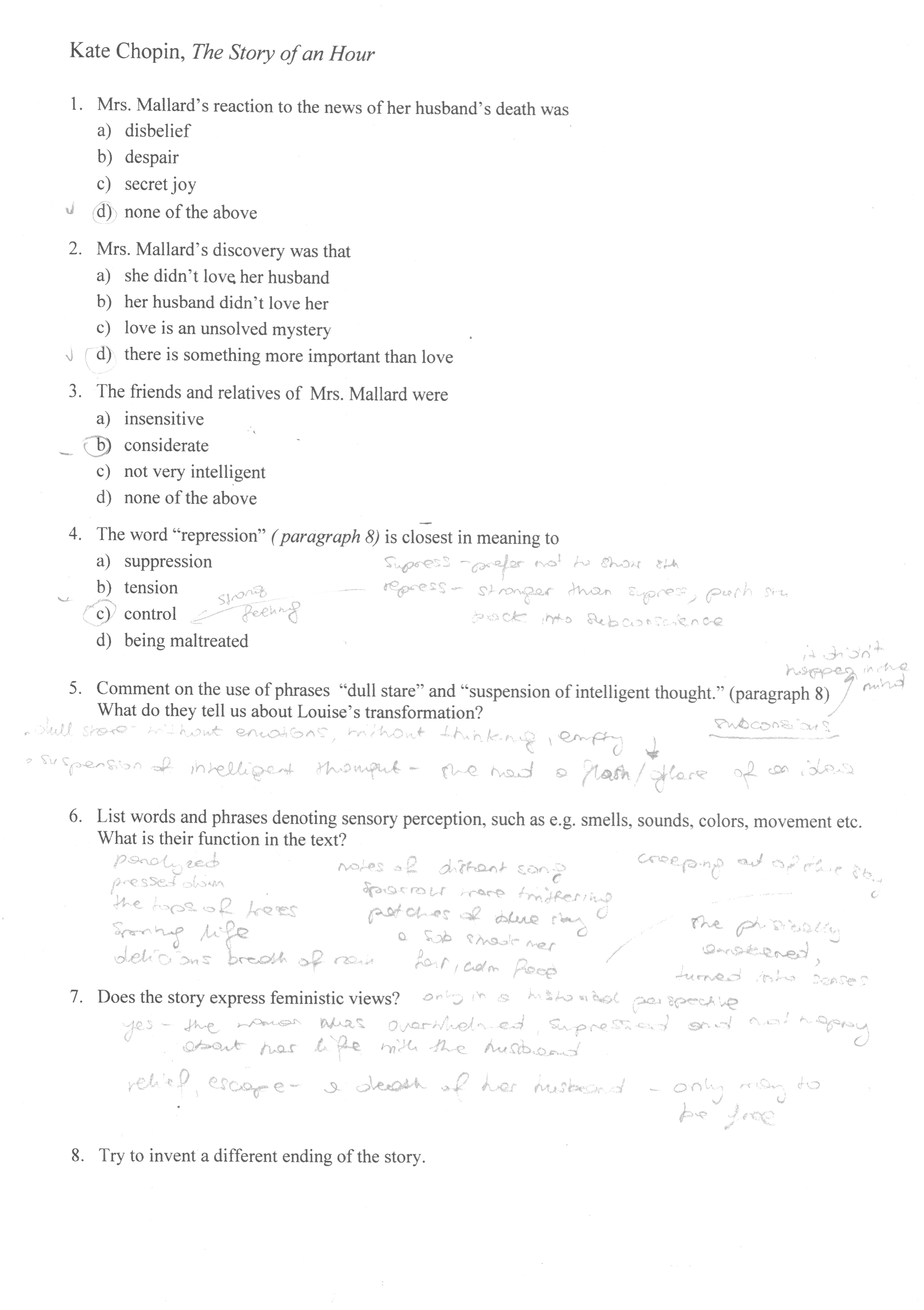czytanie teksty (4)

Kate Chopin, The Story of an Hour
1. Mrs. MallarcTs reaction to the news of her husband’s death was
a) disbelief
b) despair
c) secretjoy
d d) nonę of the above
2. Mrs. Mallard’s discovery was that
a) she didn’t lovą her husband
b) her husband didn’t love her
c) love is an unsolved my stery
\) ( d) there is something morę important than love
3. The friends and relatives of Mrs. Mallard were a) insensitive
'fT) considerate
c) not very intelligent
d) nonę of the above
4. The word “repression” (paragraph 8) is closest in meaning to
a) suppression h* n ma
b) tension ro^-----
(c)control
d) being maltreated
bitpp**
5. Comment on the use of phrases “duli stare” and “suspension of intelligent thought.” (paragraph 8) What do they tell us about Louise’s transformation?
oktjj. SfrSX&~ wt- ^ x ~--------^
C \(jf
^7 oP jh — £V~<ł i\&jdl © ^tar*e ^
6. List words and phrases denoting sensory perception, such as e.g. smells, sounds, colors, movement etc. What is their function in the text?
f , • ------------ c
(7 f^riSieM*' **.# ^ . - . /,r]
7. Does the story express feministic views? J - f *l f ^
',4^.5 — J4v^f Q. 'SU^-pr-e
s ScJt o£o
Cc?
oi-6fTr> ”.>m. ? prr>o44v ,>£? «tq
U ,, r<- <fo
. ^ i <
*£coę
8. Try to invent a different ending of the story.
Wyszukiwarka
Podobne podstrony:
czytanie teksty (3) Kate Chopin The Story of an Hour Knowing that Mrs. Mallard was afflicted with a
czytanie teksty (2) George Steiner “The Futurę of Reading 1. Paraphrase the meaning /give synonyms o
czytanie teksty (6) 398 Cłmptcr M ArgnmoUaiioa and Persuasinn may happen (o see it. But to thc child
THESaddlemaker’s Wife By National Bestselling AuthorEarlene Fowler Aftcr the dcath of her husband, C
F00574 018 f080 Pain develops, typically in forefoot, about an hour after patient goes to bed becaus
czytanie teksty the story of an hour 2 that she would weep again when she saw the kind, tender han
Project Overview This overview tells the story of an ambitious, student-led, environmental education
R£ V -> “WJngj ofa Dream is a heartwarming story of an ordinary woman caught In the middlc of oxt
więcej podobnych podstron